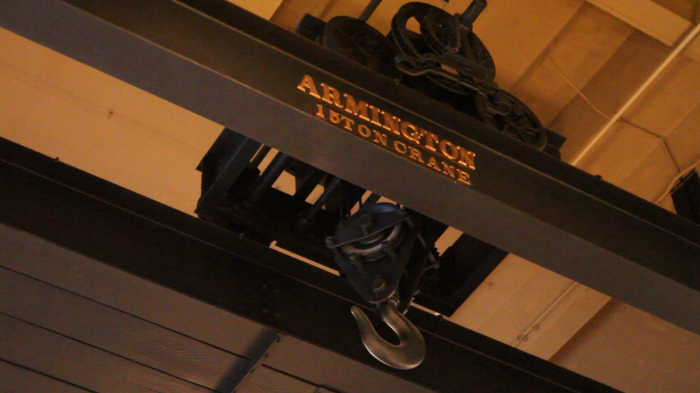“Lord teach us to pray, just like John taught his disciples” Luke 11:1
Jesus’ disciples made this request in Luke Chapter 11, it probably goes without saying that Luke Chapter 11 comes after Luke Chapter 10? So what’s the big “Aha!”? We’ll in Luke 10 Jesus had sent out the 70 with authority to trample serpents and scorpions, they came back rejoicing that,”even the demons were subject” to them. They had been sent out with simple yet clear instructions that had them visiting communities and declaring “Peace!”, fellowshipping with the lost, healing the sick and declaring the “gospel of the Kingdom”. Effective stuff, had they arrived? Surely this is a picture of a healthy church!? Out of the four walls, doing the stuff in the streets? There is a lot that challenges me in Luke chapter 10, I’m not convinced I’m even there yet. Am I certain that the demons are subject to me? Not really. So with Luke 10 as a backdrop, I’m amazed that they were asking to learn how to pray in Chapter 11. Doesn’t learning how to pray come before casting out demons? Isn’t the ability to cast out demons evidence of maturity? Maybe this is why this statement from Jesus is also recorded. “I praise you, Father, Lord of heaven and earth, because you have hidden these things from the wise and learned, and revealed them to little children”(10v21).
“Lord, teach us to pray”, it’s this type of honest request that I am convinced the Lord wants us to make. There is no mask wearing here. We assume prayer is instinctive, it doesn’t need to be taught, surely everyone knows how to pray, it’s entry level stuff. But the disciples request in Luke 11:1 suggests they are not convinced that they can learn how to pray like Jesus or John without some help and training.
I never really paid much attention to this verse until recently. I guess when you are contending for clarity as a pastor you become more attentive to these sometimes overlooked details. So I don’t think I really knew that second part about the comparison to John teaching his disciples to pray was connected to this well known statement. What I think is important to understand about the comparison is John was a Nazirite(not a Nazarite). A nazirite, took a special vow of consecration, during times of crisis. They were prophets not priests and often arose at times when the priesthood had become corrupt and had failed to honor the Lord in their responsibilities. The emergence of a nazirite suggests that the state of the nation was on a slide and had almost reached the point of no return. Nazirite’s were like a final lifeline. It’s my belief that the first order of business of a nazirite beyond the long hair, no wine drinking & not touching dead things, was to teach the people to pray. Where the purpose of the priesthood had become cloudy due to corruption, the nazirite would remind the people of their first responsibility as a chosen people, to pray – ministering to the heart of God. In preparing the people to receive Jesus, John had been faithful in teaching his disciples to pray – and it was worth recognizing and worthy of being noted, in scripture.
There is a pattern in the book of 1 Samuel that Dean Briggs brings out in his book, “Ekklesia Rising”. He points out that Hannah, in her barrenness desperately cries out to the Lord of Hosts*. At the time a corrupt high priesthood, Eli & his sons, is on the verge of judgment. God answers Hannah’s prayer by giving her a son, Samuel – a nazirite. God speaks to the young Samuel that he is about “to do something that will make the ears of those who hear of it tingle”. This was probably the judgement of the house of Eli and the captivity of the Ark of the Covenant by the Philistines. Samuel later anoints David as King. It needs to be noted, David is the author of many of the Psalms, the prayer book of the Scriptures. This is important, and often overlooked, it is my recent understanding that we only mature in the language of prayer, through meditating and living the Psalms. I believe it is important not to miss the role the language of the Psalms played in the ascendancy of the nation of Israel under King David. Eugene Peterson suggests, praying the psalms keeps our prayer from being dishonest and superficial. We might not be able to detect the dishonesty and superficiality, in ourselves, but God certainly can.
In the small book, “Psalms the Prayer Book of the Bible”, Dietrich Bonhoeffer opens the first chapter with this paragraph.
Chapter 1 “Lord, Teach Us to Pray!”
So spoke the disciples to Jesus. In making this request, they confessed that they were not able to pray on their own, that they had to learn to pray. The phrase “learning to pray” sounds strange to us. If the heart does not overflow and begin to pray by itself, we say, it will never “learn” to pray. But it is a dangerous error, surely very widespread among Christians, to think that the heart can pray by itself. For then we confuse wishes, hopes, sighs, laments, rejoicings – all of which the heart can do by itself – with prayer. And we confuse earth and heaven, man and God. Prayer does not mean simply to pour out one’s heart. It means rather to find the way to God and to speak with him, whether the heart is full or empty. No man can do that by himself. For that he needs Jesus Christ.
Dietrich Bonhoeffer, “Psalms the Prayer Book of the Bible”, Augsburg, 1970
I have often heard the frustration, from Pastors, that in many of the prayer meetings they are asked to attend the prayer times become an opportunity for others to “Pray Preach”. The “prayers” are horizontal not vertical. I’m not certain those who resolve to stick it out in the interests of contending for “unity” ever see the fog lift.
I grew up in Scotland and while studying Divinity at the University of Aberdeen, I became friends with a group of young ministers (in training) from the Islands of Lewis & Harris. My first year there we would pray every night in the dorm rooms. They would share stories of a time on the Island of Lewis where, the spirit of the Lord visited the Island at a moment in history where it appeared all was lost. But a handful of saints pressed in, learning how to pray in such a way that the Island was shaken by the holiness of God and deep conviction & repentance filled the Island. The stories were remarkable. Here, 50 years after , the grandkids of these saints had been marked by this move and there was a longing in their hearts for this benchmark to be re-realized by their generation. How did these Islanders pray? I believe the psalms were a big part of it.
For the past year I have had the privilege of serving with The Response. A call to pray for a nation at a crossroads. These events are Solemn Assemblies in the spirit of Joel 2. The more I participate in them the more I believe the Lord is using them to teach me/us how to pray, ekklesia type intercession. I believe Jesus wants to teach us how to pray in order to move us from Joel2 – solemn assemblies to become the Psalm 110 – contending ekklesia on the earth. Could part of the reason these events often don’t have a high attendance be, that the average Christian in America has tasted the victory of Luke 10 and may be under the assumption that we already know how to pray? After all it takes some honesty to be vulnerable enough to ask “to be taught how to pray”, especially if you’re a pastor. If we are indeed at Luke 10, I believe we are headed in the right direction.
Until the Light of Glory shines on the nations like he did on the Island’s of Lewis & Harris, Lord teach me how to pray.
(* )Briggs is careful to draw our attention to the name of God used by Hannah in her intercession, “Lord Sabaoth”. Hannah’s desperate intercession is the first mention of this name in scripture. Lord Sabaoth means “The Lord of the Angel Armies”. It would appear this is the appropriate name to address the Lord with in the face of unbridled human corruption. Incidentally the second mention of the name Lord Sabaoth is by David on the battlefield against Goliath. He opposes the philistine giant in the name of Jehovah Sabaoth.
“Briggs’ pattern;
- Fervent Intercession brings forth
- Naziritic consecration which produces
- a clearly prophetic voice by which
- anointed destinies are produced
- giants are challenged and overcome and
- the king is made known”
(*) Dean Briggs, “Ekklesia Rising, The Authority of Christ in Communities of Contending Prayer”, Champion Press, 2014


